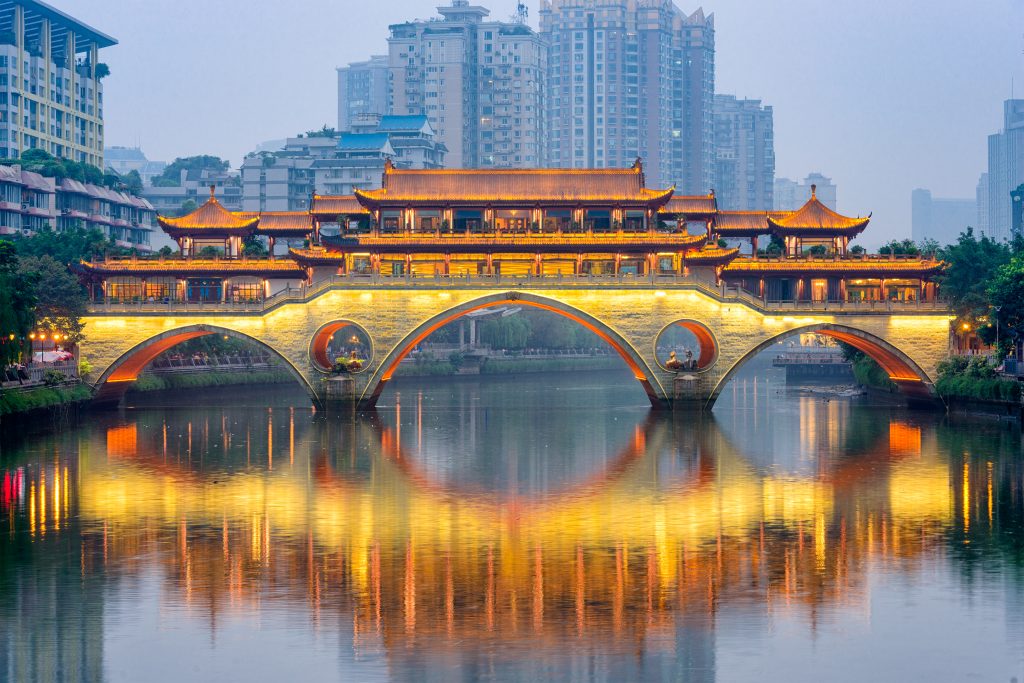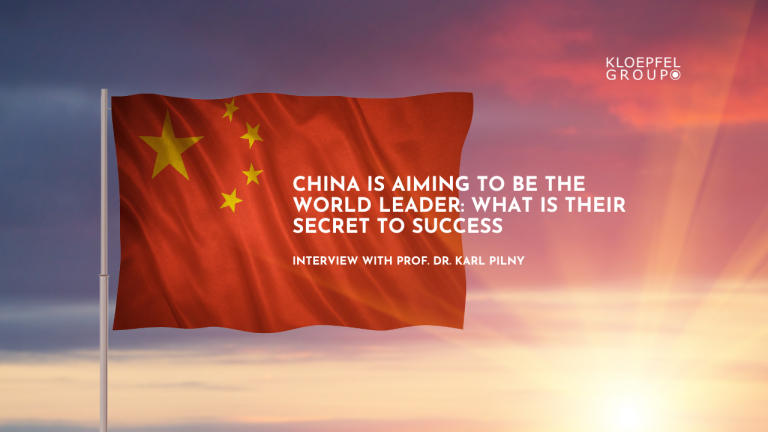China is aiming to be the world leader: What is their secret to success
What do German-speaking companies need to know about Chinese economic policy and entrepreneurs?
In my opinion, a large part of China’s success, or the Chinese success gene, is that it is a “both/and” culture. This is not always understood by the West, but it is important for politics and business to understand this in order to work constructively with China and Chinese companies. Unlike China, we in the West have an either/or or black and white culture. This means that the Chinese government as well as the Chinese themselves manage a very difficult balancing act. On the one hand, they have very long-term strategic goals, both the state and the provinces and companies. But at the same time, they have a pragmatic, almost unscrupulous adaptability, which of course has implications for contracting, etc.
This gives them enormous agility. Small examples would be that already in the mid-eighties, the century goals were announced, where China wants to be in 2049, when the centennial of the People’s Republic of China is coming up. By and large, these guidelines or guard rails are being adhered to. But what the path to this goal looks like in concrete terms is very often tried out through trial and error. This applies to Chinese politics and Chinese companies.
China thinks in the long term and not, for example, from election to election. For example, the Chinese want to “bring Taiwan home” again. This has been reiterated again and again for decades. Every voice from the outside is seen as undue interference in an internal matter. An attack by China is only a matter of time.
As I said before, the Chinese think strategically in long historical time frames. They have a great sense of history. For them, a few decades are a cinch. They don’t just look at whether they will be the world’s largest economy the year after next or in seventeen years. But according to purchasing power parity, they have been for quite some time.
To summarize sweetly, from the Chinese point of view, the story went very well for three and a half thousand years. Let’s look at the beginning of the 18th century. China and India together accounted for more than half of the world’s gross national product. Only in the last 180 years, that is, since the lost opium wars in the 1840s, has China been humiliated and relegated to the bottom rung.

The Chinese want to return to the top of the world – where they were for thousands of years.
They think to themselves, what are the last 180 years compared to the country’s three and a half thousand years of history? When, on the other hand, Putin presents Russia as a world empire, the Chinese can only laugh out loud.
This goal of returning to the top of the world shapes China’s entire thinking and actions. In the government’s strategic plans, which have been laid out over years, the group is therefore much more important than the individual Chinese or the individual company.
The harsh interventions against, for example, the tech company Alibaba, which has been cut back, is a trend of politicization of the economy that has been announced. And it will continue if companies become too powerful.
It is clear that Xiy Jinping, as the most powerful politician, is pushing the ideologization and politicization of the economy – also to consolidate his position. I have described this new course of Chinese economic policy at the 20th Party Congress in detail in my newsletter “Name & Signup Link Newsletter”. They consider the effects of entrepreneurial action not only on the company but on entire communities, provinces and, if necessary, on the entire country. But this is only possible if politicians think in the long term. To put it bluntly, our politicians only think until the next election. That is one of our weaknesses.
When does China want to become the world leader?
Since they think in the long term – and now I’m coming back to my starting point – the Chinese don’t care at all whether they are the world’s largest economy in 2035 or 2042 and have the world’s best largest army, etc. From the Chinese point of view, it would be nice if this were the case by 2049 at the latest, i.e. by the time the state celebrates its centenary. And everything is subordinated to this goal.
Here are further parts of the series “Understanding China’s Soul”
Part 1: Why medium-sized companies should not completely turn their backs on China and Asia
Part 2: RCEP free trade agreement: great opportunities for SMEs
Part 4: Understanding the politicization of China’s economy
About Prof. Dr. Karl Pilny

The international business lawyer Prof. Dr. Karl Pilny is considered one of the most profound experts on Asia in the German-speaking world. The Japanese-speaking investment expert has lived in Asia for many years and has accompanied numerous investments in and to Asia over the past thirty years. Prof. Dr. Pilny is managing director of the consulting company asia21 GmbH in Zurich, which specializes in market entries in Asia, and has also been active as an entrepreneur and business angel for many years. With Dealmaker.io GmbH and the Asia Strategy Institute at the BWA in Berlin, he helps European entrepreneurs to successfully enter Asian markets and accompanied Asian companies on their way to Europe.
In addition to a strong network in politics, business and science, Pilny is a sought-after keynote speaker and author of various books with a connection to Asia. His trilogy “The Asian Century” is particularly well known. This was published by Campusverlag and includes “The Asian Century” (East Asia), “Dance of the Giants” (South Asia) and “Tiger on the Leap” (Southeast Asia). Furthermore, his “Investment Guide Asia” was published in 2010 by Finanzbuchverlag Munich. “Asia 2030 – what’s in store for the global economy”, the continuation of the trilogy, was nominated for the getAbstract International Book Award in 2019.
Co-founder and managing director of Dealmaker.io GmbH
Prof. Pilny is co-founder and managing director of Dealmaker.io GmbH. This is of interest to readers when it comes to how to set up in Asia, how to find local partners on the ground, or how to react when Asian and Chinese companies restructure supply chains from their perspective, for example. As a digital transaction advisor, Dealmaker.io also helps with all questions relating to the sale of companies.
Contact:
Kloepfel Group
Christopher Willson
Tel.: 0211 941 984 33
Pempelforter Str. 50
40211 Duesseldorf
Mail: rendite@kloepfel-consulting.com


